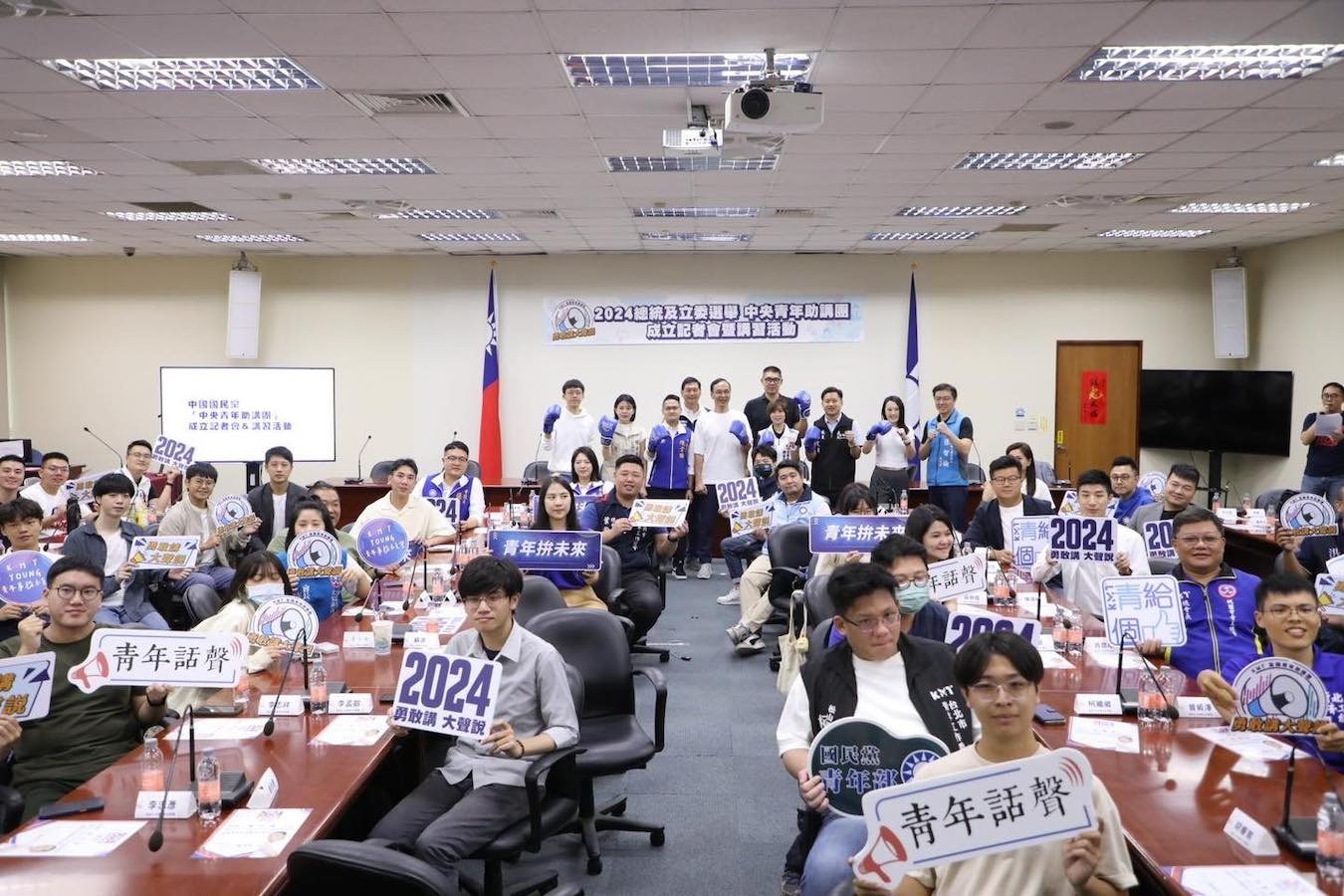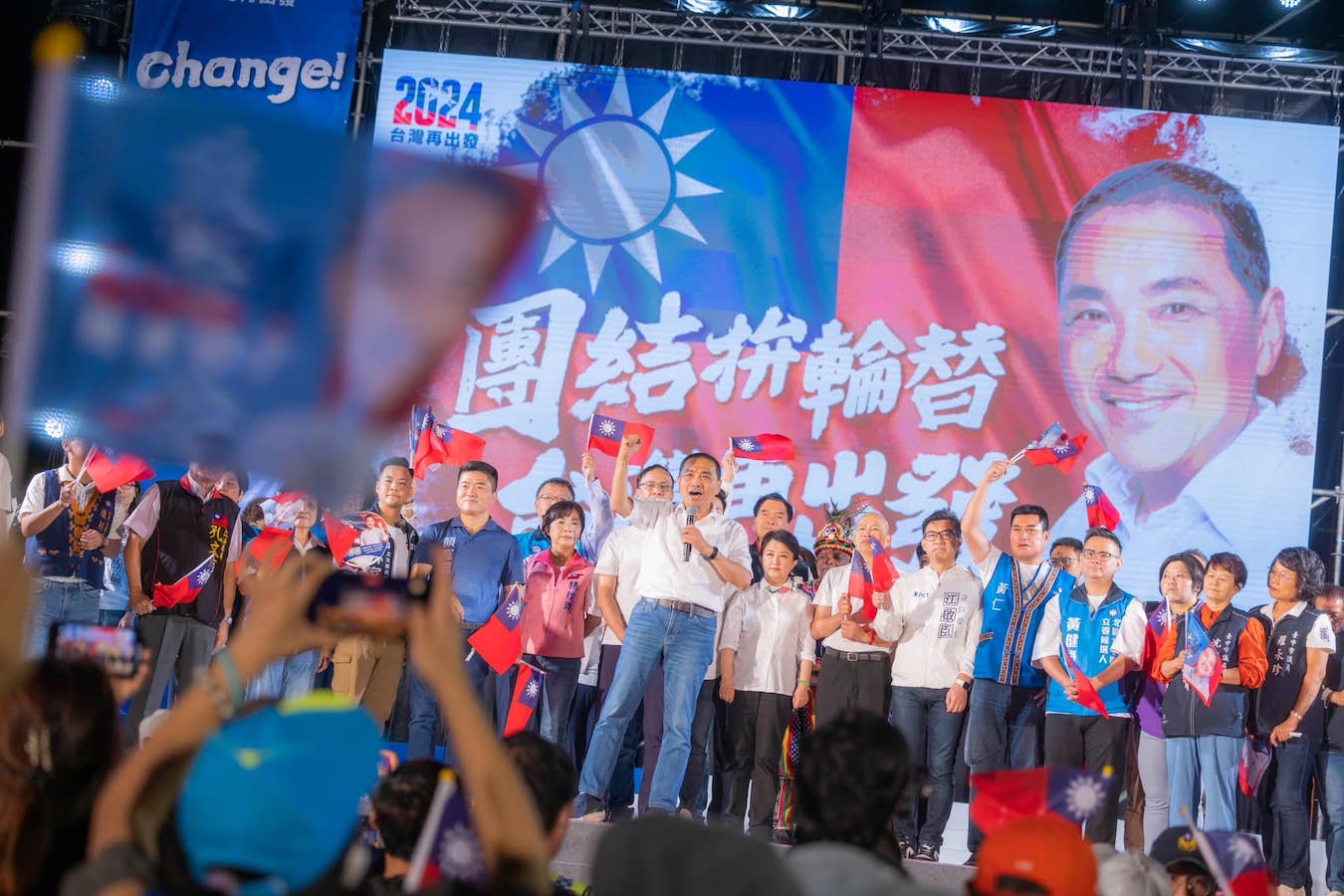by Brian Hioe
語言:
English
Photo Credit: KMT/Facebook
THE KMT CONTINUES to politicize the issue of vaccines in Taiwan, lashing out at the use of Medigen flu vaccines and framing this as the Tsai administration favoring the vaccine developer. This occurs even as Medigen is just one of a number of brands that will be used domestically.
In particular, Medigen is the company that developed Taiwan’s domestically-developed and manufactured COVID-19 vaccine. The Tsai administration threw its weight behind the development of domestically manufactured vaccines at a time when Taiwan, along with much of the world, saw shortages.
Medigen was not the only domestically-developed vaccine, with UBI Pharma also developing a vaccine. However, after testing, only Medigen’s vaccine was approved for use. Either way, though Taiwan initially lacked vaccines–as most countries that are not major world powers did— eventually Taiwan did see vaccines arrive from donations from the US and vaccine purchase agreements that had been previously negotiated.
 Photo credit: KMT/Facebook
Photo credit: KMT/Facebook
This did not prevent the KMT from seeking to allege that vaccine shortages in Taiwan were the result of the Tsai administration’s inaction. Seeing as Taiwan had previously gone for more than a year without having to undergo lockdowns, as much of the world did, the political narrative was that the proactive action of the Tsai administration had allowed Taiwan to avoid being hit by the effects of COVID-19. But when COVID-19 did enter Taiwan’s borders, the KMT alleged that the Tsai administration’s response to COVID-19 had been incompetent.
To this extent, the KMT alleged that Medigen vaccine development only occurred because of the Tsai administration’s investments in the company. Indeed, the wife of a member of the Ministry of Health and Welfare’s vaccine review committee was later charged with insider trading over advance knowledge that Medigen would be approved as a vaccine. But attacks alleging that Medigen development only occurred because of corruption were primarily a way to attack the Tsai administration.
Similarly, when Taiwan began receiving supplies of AstraZeneca vaccines, the KMT leaned into claims that AstraZeneca had only been foisted onto Taiwan by countries that did not want it, due to the dangers of the vaccines–playing on international reports of blood clots caused by AstraZeneca. Similarly, some members of the KMT began to call for the use of Chinese vaccines in Taiwan. Nonetheless, this did not prevent some members of the KMT from illegally jumping the vaccination priority order to be vaccinated with AstraZeneca, something that caused public controversy.
So, too, with Medigen flu vaccines then. Apart from allegations by the KMT that the Tsai administration is again favoring Medigen due to its ties with the company, Taipei Mayor Chiang Wan-an has stated that he will not allow Medigen vaccines to be used in schools in Taipei. As the COVID-19 pandemic saw pan-Blue local governments seek to attack the Tsai administration over its COVID-19 policy on issues ranging from vaccines to mask distribution and other measures, this repeats the dynamic seen during the COVID-19 pandemic of local governments seeking to pick fights with the central government as a means of political attack.
 Photo credit: KMT/Facebook
Photo credit: KMT/Facebook
Still, it proves interesting how the KMT has sometimes sought to target initiatives that the pan-Green camp has framed as a matter of national pride. After all, the Tsai administration initially touted Medigen development as a sign of Taiwan’s advanced medical capacity, in that it was able to develop its own vaccines in order to cope with shortages.
This occurred more recently, too, with regard to Taiwan’s domestically manufactured submarine. Namely, apart from controversies involving spying allegations, in which KMT legislator Ma Wen-chun is accused of passing on information about the submarine to China and South Korea and seeking to block the budget for the submarine, an undertone of KMT attacks on the domestically-developed submarine was to undercut the Tsai administration’s attempts to play up the submarine as a matter of national pride. Though members of the KMT sometimes attempted to credit the submarine’s development to the Ma presidency, criticizing the Tsai administration’s claims that Taiwan can be self-reliant, and efforts to tout Taiwan’s accomplishments seem to be increasingly part of the KMT’s political rhetoric. This occurs not only with vaccines but also military hardware such as submarines, while bemoaning Taiwan’s growing social issues regarding the declining birthrate and rising elderly population, among other woes.

